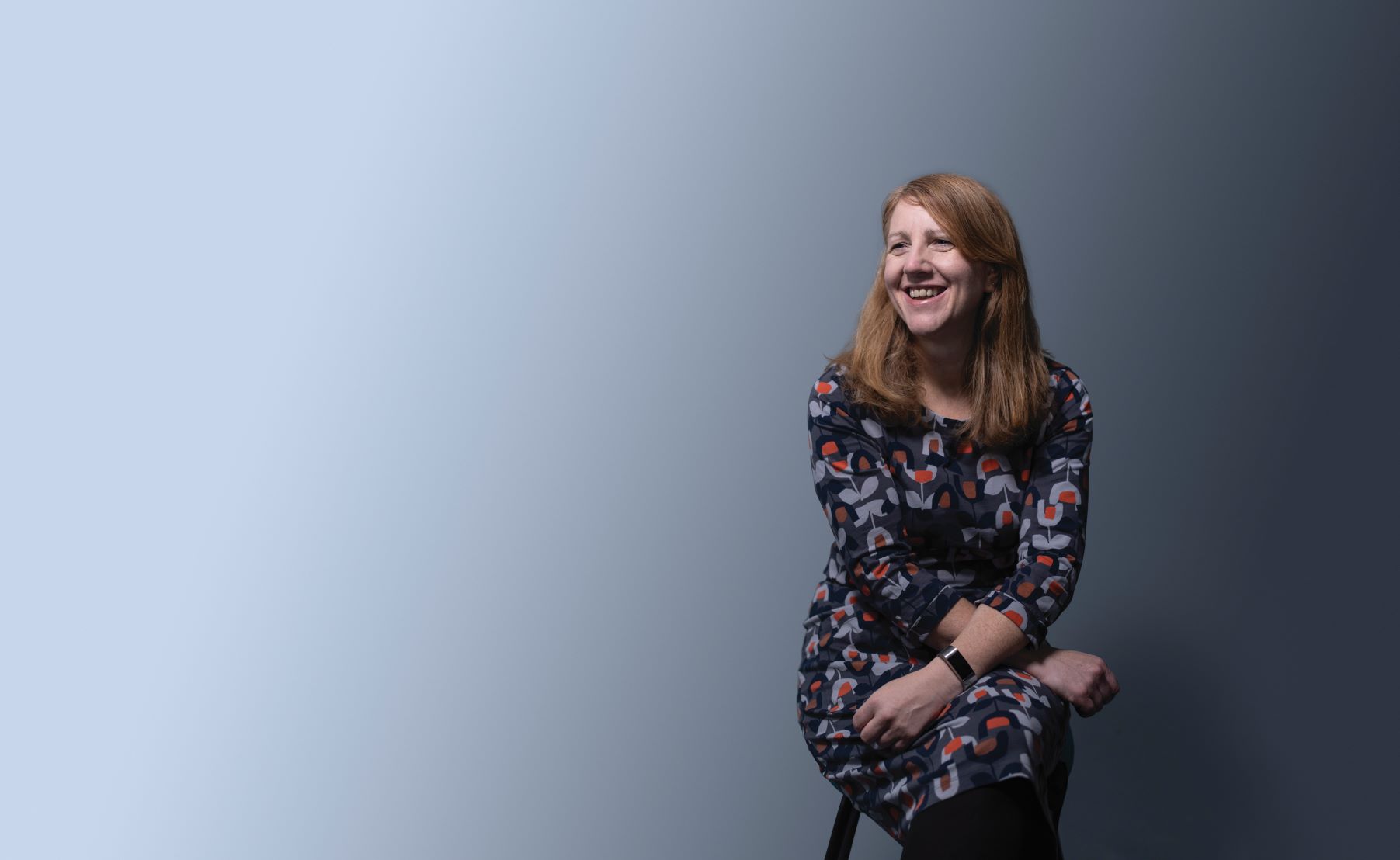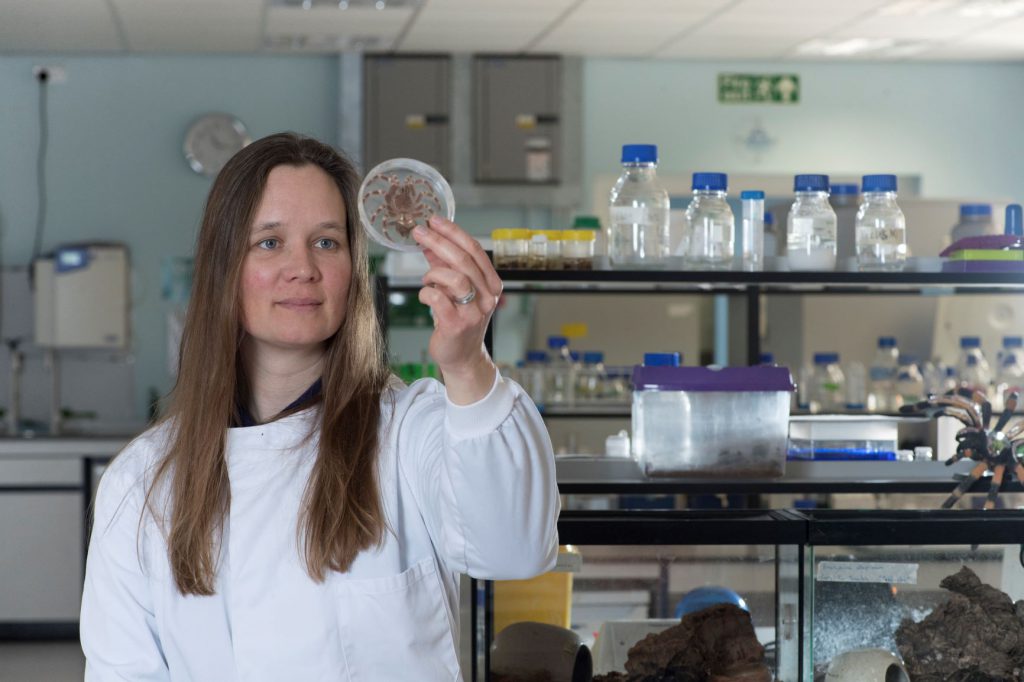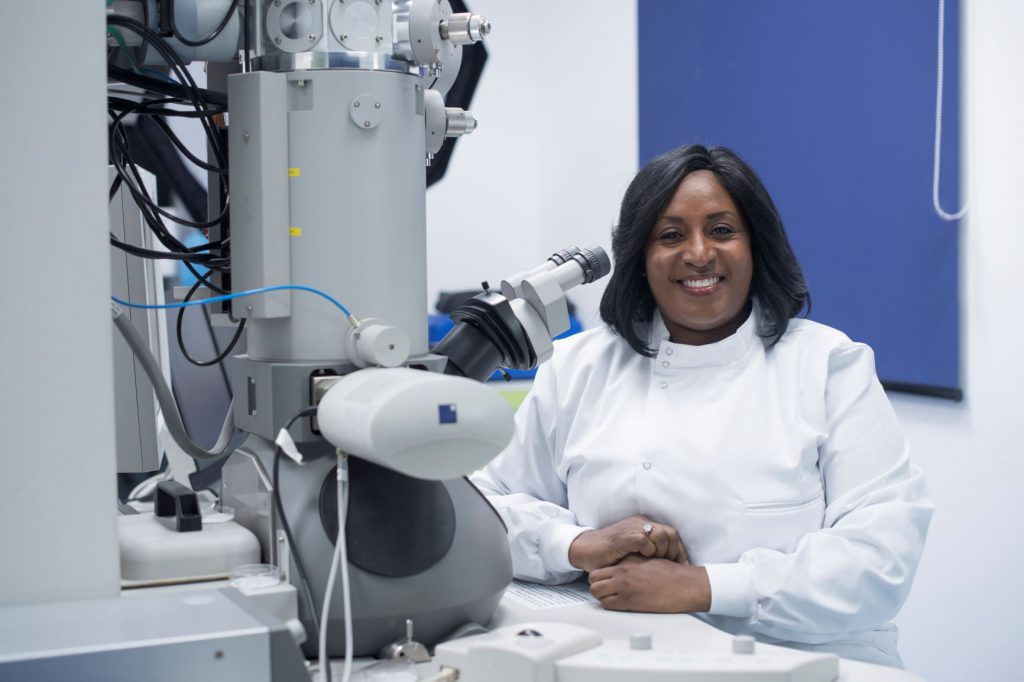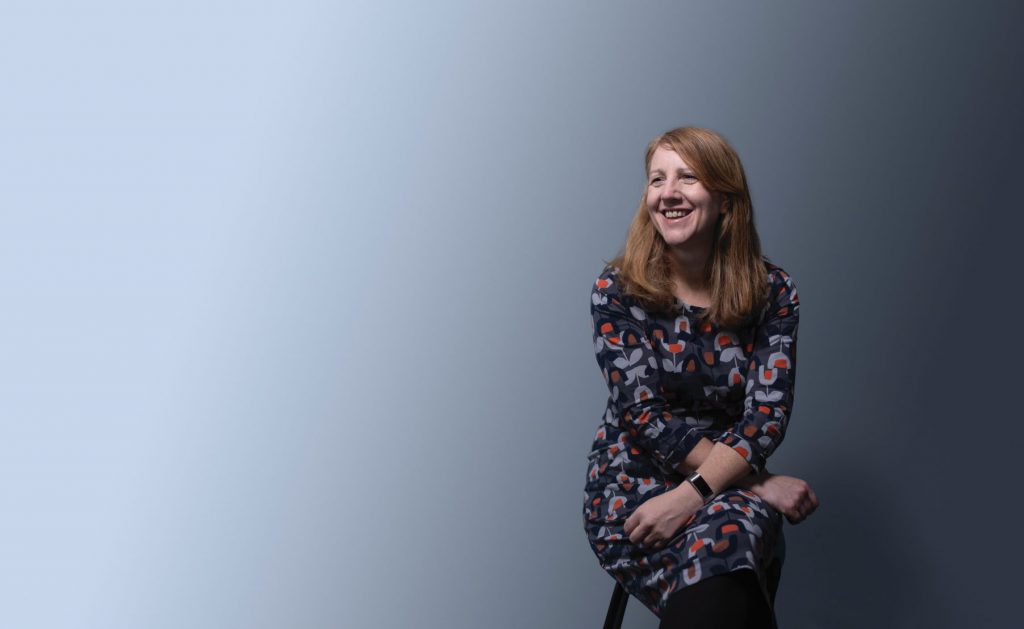
March 8, 2019, by Rob Ounsworth
On International Women’s Day, meet some inspirational people dedicated to transforming lives
The University of Nottingham is proud to celebrate International Women’s Day – and to give a shout out for our exceptional colleagues who are dedicated to transforming lives through research.
What inspires these remarkable people?
It’s a question we always ask as we tell the stories behind their discoveries in Vision, the University’s research and knowledge exchange magazine.
Here’s a snapshot:
Dr Sara Goodacre: web wonders
Dr Goodacre is a Research Councils UK Research Fellow and an Associate Professor in the School of Life Sciences. At the Spiderlab, she works on a range of evolutionary, population and conservation genetic studies, using spiders as model systems:
“Spiders are models for the study of evolution. Spiders also get a reaction – they’re a remarkable tool with which to reach out to people through our research.
“Take spider silk. Is this not the most amazing substance on the planet? It can be a thousand times finer than human hair, yet it has incredible strength and flex – and it even has a memory. Twist it multiple times, let it go and it returns exactly to its starting place. It would be incredibly useful to copy this in man-made materials.”
Denise Mclean: making research happen
Denise Mclean is a senior technician with the School of Life Sciences. She also finds time to inspire young people, raise the profile of women in science and celebrate the Caribbean community:
“I’ve been blessed. I work in an area that I thoroughly enjoy. At times it’s challenging. Every researcher wants to answer different scientific questions. With the expertise I’ve gained here, I can modify procedures to answer these – and give them some really great images to go away with.
“Over at the Queen’s Medical Centre, I do plenty of work with Ophthalmology, looking at bacterial infection in the eye. Here at the Nanoscale and Microscale Research Centre, I carry out commercial work on behalf of clients; for example, I produce images of hair samples. I’ve worked with plant scientists, the vet school…and supported brain studies for the School of Psychology.”
The University’s new Breast Cancer Research Centre also offers the prospect of supporting further research.
“The projects are really varied; that’s why I’m still here and why I still enjoy it after all these years.”
Dr Rachael Clawson: drawing back the veil
Dr Clawson is s Assistant Professor in Social Work, School of Sociology and Social Policy and the lead researcher of a major study that is looking at forced marriage of people with learning disabilities. She works with the Government’s Forced Marriage Unit and wrote multi-agency guidelines that are used every day by social workers and care professionals:
“If you think about forced marriage you probably visualise a young woman being forced to marry against her will, perhaps in a foreign country, possibly to a much older man. While some cases do fit this stereotype, there are also many that are rather different in nature.
“What is often forgotten is that some people who are forced to marry not only have not given their consent, but cannot. This is because some people with learning disabilities do not have the capacity to understand what marriage is or to choose to get married. When people with learning disabilities are forced to marry in such circumstances, the consequences can be devastating, including physical and sexual assault, emotional harm and abandonment.”
To follow more remarkable stories behind our research, subscribe to Vision Magazine
No comments yet, fill out a comment to be the first




Leave a Reply